Premium Only Content
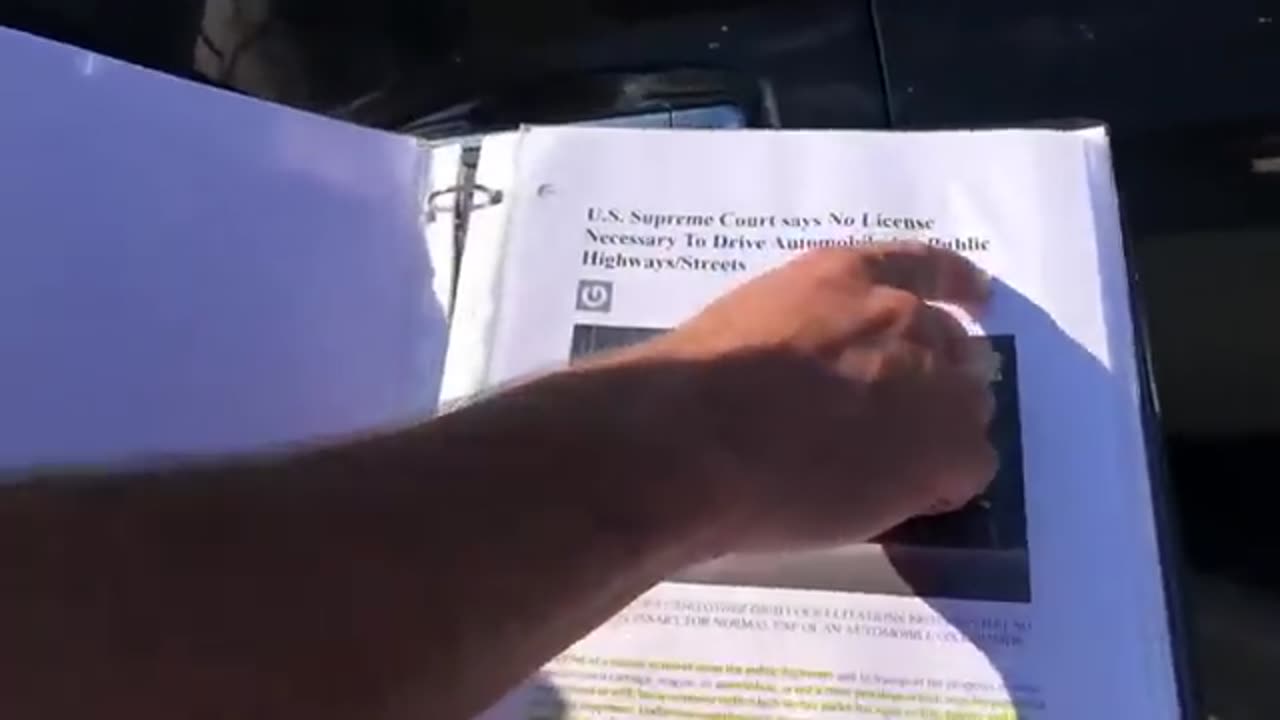
Right to Travel LAWSUIT Reward $250k for Driving w/o a License or Plates
PLEASE LOOK UP YOU RIGHT TO TRAVEL WITHOUT LICENSE
The roads are public and paid for by the gas taxes!! In order to opt out you must not have a drivers license plate on your car.
When you get pulled over ask What's your Emergency and how may assist you?
Sec. 502.003.
REGISTRATION BY POLITICAL SUBDIVISION PROHIBITED.
(a) Except as provided by Subsection (b), a political subdivision of this state may not require an owner of a motor vehicle to:
(1) register the vehicle;
(2) pay a motor vehicle registration fee; or
(3) pay an occupation tax or license fee in connection with a motor vehicle.
(b) This section does not affect the authority of a municipality to:
(1) license and regulate the use of motor vehicles for compensation within the municipal limits; and
(2) impose a permit fee or street rental charge for the operation of each motor vehicle used to transport passengers for compensation,
other than a motor vehicle operating under a registration certificate from the department or a permit from the federal Surface Transportation Board.
(c) A fee or charge under Subsection (b) may not exceed two percent of the annual gross receipts from the vehicle.
(d) This section does not impair the payment provisions of an agreement or franchise between a municipality and the owners or operators of motor vehicles used to transport passengers for compensation.
license and regulate the use of a motor vehicle for compensation
Amdt4.6.5.1 Terry Stop and Frisks Doctrine and Practice
Fourth Amendment:
The right of the people to be secure in their persons, houses, papers, and effects,
against unreasonable searches and seizures, shall not be violated, and no Warrants shall issue,
but upon probable cause, supported by Oath or affirmation, and particularly describing the place to be searched, and the persons or things to be seized.
https://constitution.congress.gov/browse/essay/amdt4-5-5-1/ALDE_00000797/
Stare decisis,
meaning in Latin “to stand by things decided,”
is a legal principle that directs courts to adhere to previous judgments (or judgments of higher tribunals) while resolving a case with allegedly comparable facts.
Stare decisis: Definition, examples and critical analysis
https://legal.thomsonreuters.com/blog/the-doctrine-of-stare-decisis/
Emergency Vehicle Light State by State Statutes Guide
https://www.extremetacticaldynamics.com/knowledge-base/state-statutes/
leftus nexus 502.003 registration by political subdivision prohibited
2021 Texas Statutes Transportation Code
Title 7 - Vehicles and Traffic
Subtitle A - Certificates of Title and Registration of Vehicles
Chapter 502 - Registration of Vehicles
Subchapter A. General Provisions
Section 502.003. Registration by Political Subdivision Prohibited
What is Reasonable Articulable Suspicion?
https://www.muscalaw.com/blog/what-reasonable-articulable-suspicion
The Fourth Amendment & Traffic Stops (Understanding RAS / PC)
Sep 10,
2022Reasonable articulable suspicion (RAS) is what an officer needs to conduct an investigatory stop.
This means the officer must be able to articulate exactly what it is that provides them with a reasonable inference that criminal activity is afoot.
What Does The Phrase Specific And Articulable Facts Mean?
https://www.zenlawfirm.com/what-does-the-phrase-specific-and-articulable-facts-mean/
Texas Criminal & Traffic Law Manual: 2023-2024 Edition
https://www.blue360media.com/catalog/product/view/id/4576
Pennsylvania Criminal & Traffic Law Manual: 2024 Ed.
https://www.blue360media.com/catalog/product/view/id/5197
What’s The Difference Between Reasonable Suspicion and Probable Cause?
https://www.greenspunlaw.com/faqs/reasonable-suspicion-vs-probable-cause.cfm
5.1: Principles of Probable Cause and Reasonable Suspicion
Federal Motor Carrier Safety Regulations; Definition of Commercial Motor Vehicle (CMV); Requirements for Operators of Small Passenger-Carrying CMVs
How High are Gas Taxes in Your State?
https://taxfoundation.org/data/all/state/state-gas-tax-rates-2023/
WHAT IS REASONABLE AND ARTICULABLE SUSPICION?
https://bk-lawgroup.com/blog/what-is-reasonable-and-articulable-suspicion/
U.S. SUPREME COURT SAYS NO LICENSE NECESSARY TO DRIVE AUTOMOBILE ON PUBLIC ROADS
THE RIGHT TO TRAVEL
DECEMBER 2009
https://www.agenda31.org/wp-content/uploads/2014/06/The-Right-to-Travel.pdf
Amdt 14.S1.8.13.2 Interstate Travel as a Fundamental Right
https://constitution.congress.gov/browse/essay/amdt14-S1-4-3-2-1/ALDE_00000840/
ArtIV.S2.C1.13 Right to Travel and Privileges and Immunities Clause
U.S. SUPREME COURT AND OTHER HIGH COURT CITATIONS PROVING THAT NO LICENSE IS NECESSARY FOR NORMAL USE OF AN AUTOMOBILE ON COMMON WAYS
“The right of a citizen to travel upon the public highways and to transport his property thereon,
by horsedrawn carriage, wagon, or automobile, is not a mere privilege which may be permitted or prohibited at will, but a common right which he has under his right to life,
liberty and the pursuit of happiness.
Under this constitutional guaranty one may, therefore, under normal conditions,
travel at his inclination along the public highways or in public places, and while conducting himself in an orderly and decent manner,
neither interfering with nor disturbing another’s rights, he will be protected, not only in his person, but in his safe conduct.”
Thompson v. Smith, 154 SE 579, 11 American Jurisprudence, Constitutional Law, section 329, page 1135
“The right of the Citizen to travel upon the public highways and to transport his property thereon, in the ordinary course of life and business, is a common right which he has under the right to enjoy life and liberty, to acquire and possess property, and to pursue happiness and safety.
It includes the right, in so doing, to use the ordinary and usual conveyances of the day, and under the existing modes of travel, includes the right to drive a horse drawn carriage or wagon thereon or to operate an automobile thereon, for the usual and ordinary purpose of life and business.” –
Thompson vs. Smith, supra.; Teche Lines vs. Danforth, Miss., 12 S.2d 784 “…
the right of the citizen to drive on a public street with freedom from police interference…
is a fundamental constitutional right” -White, 97 Cal.App.3d.141, 158 Cal.Rptr. 562, 566-67 (1979)
“citizens have a right to drive upon the public streets of the District of Columbia or any other city absent a constitutionally sound reason for limiting their access.”
Caneisha Mills v. D.C. 2009
“The use of the automobile as a necessary adjunct to the earning of a livelihood in modern life requires us in the interest of realism to conclude that the RIGHT to use an automobile on the public highways partakes of the nature of a liberty within the meaning of the Constitutional guarantees. . .”
Berberian v. Lussier (1958) 139 A2d 869, 872, See also: Schecter v. Killingsworth, 380 P.2d 136, 140; 93 Ariz. 273 (1963).
“The right to operate a motor vehicle [an automobile] upon the public streets and highways is not a mere privilege.
It is a right of liberty, the enjoyment of which is protected by the guarantees of the federal and state constitutions.”
Adams v. City of Pocatello, 416 P.2d 46, 48; 91 Idaho 99 (1966).
“A traveler has an equal right to employ an automobile as a means of transportation and to occupy the public highways with other vehicles in common use.”
Campbell v. Walker, 78 Atl. 601, 603, 2 Boyce (Del.) 41.
“The owner of an automobile has the same right as the owner of other vehicles to use the highway,* * *
A traveler on foot has the same right to the use of the public highways as an automobile or any other vehicle.”
Simeone v. Lindsay, 65 Atl. 778, 779; Hannigan v. Wright, 63 Atl. 234, 236.
“The RIGHT of the citizen to DRIVE on the public street with freedom from police interference,
unless he is engaged in suspicious conduct associated in some manner with criminality is a
FUNDAMENTAL CONSTITUTIONAL RIGHT which must be protected by the courts.” People v. Horton 14 Cal. App. 3rd 667 (1971)
“The right to make use of an automobile as a vehicle of travel long the highways of the state, is no longer an open question.
The owners thereof have the same rights in the roads and streets as the drivers of horses or those riding a bicycle or traveling in some other vehicle.”
House v. Cramer, 112 N.W. 3; 134 Iowa 374;
Farnsworth v. Tampa Electric Co. 57 So. 233, 237, 62 Fla. 166.
“The automobile may be used with safety to others users of the highway
, and in its proper use upon the highways there is an equal right with the users of other vehicles properly upon the highways.
The law recognizes such right of use upon general principles.
Brinkman v Pacholike, 84 N.E. 762, 764, 41 Ind. App. 662, 666.
“The law does not denounce motor carriages, as such, on public ways.
They have an equal right with other vehicles in common use to occupy the streets and roads.
It is improper to say that the driver of the horse has rights in the roads superior to the driver of the automobile. Both have the right to use the easement.”
Indiana Springs Co. v. Brown, 165 Ind. 465, 468.
U.S. Supreme Court says No License Necessary To Drive Automobile On Public Highways/Streets No License Is Necessary Copy
2 2 “A highway is a public way open and free to any one who has occasion to pass along it on foot or with any kind of vehicle.” Schlesinger v. City of Atlanta, 129 S.E. 861, 867, 161 Ga. 148, 159;
Holland v. Shackelford, 137 S.E. 2d 298, 304, 220 Ga. 104; Stavola v. Palmer, 73 A.2d 831, 838, 136 Conn. 670
“There can be no question of the right of automobile owners to occupy and use the public streets of cities, or highways in the rural districts.”
Liebrecht v. Crandall, 126 N.W. 69, 110 Minn. 454, 456
“The word ‘automobile’ connotes a pleasure vehicle designed for the transportation of persons on highways.”
-American Mutual Liability Ins. Co., vs. Chaput, 60 A.2d 118, 120; 95 NH 200 Motor Vehicle: 18 USC Part 1 Chapter 2 section 31
definitions: “(6) Motor vehicle. –
The term “motor vehicle” means every description of carriage or other contrivance propelled or drawn by mechanical power and used for commercial purposes on the highways…”
10) The term “used for commercial purposes” means the carriage of persons or property for any fare, fee, rate, charge or other consideration, or directly or indirectly in connection with any business, or other undertaking intended for profit.
“A motor vehicle or automobile for hire is a motor vehicle, other than an automobile stage, used for the transportation of persons for which remuneration is received.”
-International Motor Transit Co. vs. Seattle, 251 P. 120 The term ‘motor vehicle’ is different and broader than the word ‘automobile.’”
-City of Dayton vs. DeBrosse, 23 NE.2d 647, 650; 62 Ohio App. 232
“Thus self-driven vehicles are classified according to the use to which they are put rather than according to the means by which they are propelled” – Ex Parte Hoffert, 148 NW 20 ”
The Supreme Court, in Arthur v. Morgan, 112 U.S. 495, 5 S.Ct. 241, 28 L.Ed. 825,
held that carriages were properly classified as household effects, and we see no reason that automobiles should not be similarly disposed of.”
Hillhouse v United States, 152 F. 163, 164 (2nd Cir. 1907). “
…a citizen has the right to travel upon the public highways and to transport his property thereon…”
State vs. Johnson, 243 P. 1073; Cummins vs. Homes, 155 P. 171; Packard vs. Banton, 44 S.Ct. 256; Hadfield vs. Lundin, 98 Wash 516, Willis vs. Buck, 263 P. l 982;
Barney vs. Board of Railroad Commissioners, 17 P.2d 82
“The use of the highways for the purpose of travel and transportation is not a mere privilege, but a common and fundamental Right of which the public and the individual cannot be rightfully deprived.”
Chicago Motor Coach vs. Chicago, 169 NE 22; Ligare vs. Chicago, 28 NE 934; Boon vs. Clark, 214 SSW 607; 25 Am.Jur. (1st) Highways Sect.163
“the right of the Citizen to travel upon the highway and to transport his property thereon in the ordinary course of life and business… is the usual and ordinary right of the Citizen, a right common to all.” –
Ex Parte Dickey, (Dickey vs. Davis), 85 SE 781
“Every Citizen has an unalienable RIGHT to make use of the public highways of the state; every Citizen has full freedom to travel from place to place in the enjoyment of life and liberty.” People v. Nothaus, 147 Colo. 210.
“No State government entity has the power to allow or deny passage on the highways, byways, nor waterways…
transporting his vehicles and personal property for either recreation or business, but by being subject only to local regulation i.e., safety, caution, traffic lights, speed limits, etc.
Travel is not a privilege requiring licensing, vehicle registration, or forced insurances.”
Chicago Coach Co. v. City of Chicago, 337 Ill. 200, 169 N.E. 22.
“Traffic infractions are not a crime.” People v. Battle “Persons faced with an unconstitutional licensing law which purports to require a license as a prerequisite to exercise of right…
may ignore the law and engage with impunity in exercise of such right.”
Shuttlesworth v. Birmingham 394 U.S. 147 (1969).
U.S. Supreme Court say
s No License Necessary To Drive Automobile On Public
Highways/Streets No License Is Necessary Copy and Share Freely
“The word ‘operator’ shall not include any person who solely transports his own property and who transports no persons or property for hire or compensation.”
Statutes at Large California Chapter 412 p.83
“Highways are for the use of the traveling public, and all have the right to use them in a reasonable and proper manner;
the use thereof is an inalienable right of every citizen.” Escobedo v. State 35 C2d 870 in 8 Cal Jur 3d p.27
“RIGHT —
A legal RIGHT, a constitutional RIGHT means a RIGHT protected by the law, by the constitution, but government does not create the idea of RIGHT or original RIGHTS;
it acknowledges them. . . “ Bouvier’s Law Dictionary, 1914, p. 2961.
“Those who have the right to do something cannot be licensed for what they already have right to do as such license would be meaningless.”
City of Chicago v Collins 51 NE 907, 910.
“A license means leave to do a thing which the licensor could prevent.”
Blatz Brewing Co. v. Collins, 160 P.2d 37, 39; 69 Cal. A. 2d 639.
“The object of a license is to confer a right or power, which does not exist without it.”
Payne v. Massey (19__) 196 SW 2nd 493, 145 Tex 273.
“The court makes it clear that a license relates to qualifications to engage in profession, business, trade or calling; thus, when merely traveling without compensation or profit, outside of business enterprise or adventure with the corporate state, no license is required of the natural individual traveling for personal business, pleasure and transportation.”
Wingfield v. Fielder 2d Ca. 3d 213 (1972).
“If [state] officials construe a vague statute unconstitutionally, the citizen may take them at their word, and act on the assumption that the statute is void.” –
Shuttlesworth v. Birmingham 394 U.S. 147 (1969).
“With regard particularly to the U.S. Constitution, it is elementary that a Right secured or protected by that document cannot be overthrown or impaired by any state police authority.”
Donnolly vs. Union Sewer Pipe Co., 184 US 540; Lafarier vs. Grand Trunk R.R. Co., 24 A. 848; O’Neil vs. Providence Amusement Co., 108 A. 887.
“The right to travel (called the right of free ingress to other states, and egress from them) is so fundamental that it appears in the Articles of Confederation, which governed our society before the Constitution.”
(Paul v. Virginia).
“[T]he right to travel freely from State to State … is a right broadly assertable against private interference as well as governmental action. Like the right of association, it is a virtually unconditional personal right, guaranteed by the Constitution to us all.” (U.S. Supreme Court,
Shapiro v. Thompson). EDGERTON, Chief Judge:
“Iron curtains have no place in a free world. …
’Undoubtedly the right of locomotion, the right to remove from one place to another according to inclination, is an attribute of personal liberty, and the right, ordinarily, of free transit from or through the territory of any State is a right secured by the Constitution.’
Williams v. Fears, 179 U.S. 270, 274, 21 S.Ct. 128, 45 L.Ed. 186.
“Our nation has thrived on the principle that, outside areas of plainly harmful conduct, every American is left to shape his own life as he thinks best, do what he pleases, go where he pleases.” Id., at 197.
Kent vs. Dulles see Vestal, Freedom of Movement,
41 Iowa L.Rev. 6, 13—14.
“The validity of restrictions on the freedom of movement of particular individuals, both substantively and procedurally, is precisely the sort of matter that is the peculiar domain of the courts.” Comment, 61 Yale L.J. at page 187.
“a person detained for an investigatory stop can be questioned but is “not obliged to answer, answers may not be compelled, and refusal to answer furnishes no basis for an arrest.”
Justice White, Hiibel
“Automobiles have the right to use the highways of the State on an equal footing with other vehicles.”
Cumberland Telephone. & Telegraph Co. v Yeiser 141 Kentucy 15.
“Each citizen has the absolute right to choose for himself the mode of conveyance he desires, whether it be by wagon or carriage, by horse, motor or electric car, or by bicycle, or astride of a horse, subject to the sole condition that he will observe all those requirements that are known as the law of the road.”
Swift v City of Topeka, 43
U.S. Supreme Court says No License Necessary To Drive Automobile On Public Highways/Streets No License Is Necessary Copy and 4 Kansas 671, 674.
The Supreme Court said in U.S. v Mersky (1960) 361 U.S. 431: An administrative regulation, of course, is not a “statute.”
A traveler on foot has the same right to use of the public highway as an automobile or any other vehicle.
Cecchi v. Lindsay, 75 Atl. 376, 377, 1 Boyce (Del.) 185.
Automotive vehicles are lawful means of conveyance and have equal rights upon the streets with horses and carriages.
Chicago Coach Co. v. City of Chicago, 337 Ill. 200, 205; See also: Christy v. Elliot, 216 Ill. 31; Ward v. Meredith, 202 Ill. 66; Shinkle v. McCullough, 116 Ky. 960; Butler v. Cabe, 116 Ark. 26, 28-29. …
automobiles are lawful vehicles and have equal rights on the highways with horses and carriages.
Daily v. Maxwell, 133 S.W. 351, 354.
Matson v. Dawson, 178 N.W. 2d 588, 591.
A farmer has the same right to the use of the highways of the state, whether on foot or in a motor vehicle, as any other citizen.
Draffin v. Massey, 92 S.E.2d 38, 42.
Persons may lawfully ride in automobiles, as they may lawfully ride on bicycles. Doherty v. Ayer, 83 N.E. 677, 197 Mass. 241, 246;
Molway v. City of Chicago, 88 N.E. 485, 486, 239 Ill. 486; Smiley v. East St. Louis Ry. Co., 100 N.E. 157, 158.
“A soldier’s personal automobile is part of his ‘household goods[.]’
U.S. v Bomar, C.A.5(Tex.), 8 F.3d 226, 235” 19
A Words and Phrases – Permanent Edition (West) pocket part 94. “[I]t is a jury question whether … an automobile … is a motor vehicle[.]”
United States v Johnson, 718 F.2d 1317, 1324 (5th Cir. 1983).
Other right to use an automobile cases: –
EDWARDS VS. CALIFORNIA, 314 U.S. 160 –
TWINING VS NEW JERSEY, 211 U.S. 78 – WILLIAMS VS. FEARS, 179 U.S. 270, AT 274 – CRANDALL VS. NEVADA, 6 WALL. 35, AT 43-44 – THE PASSENGER CASES, 7 HOWARD 287, AT 492 – U.S. VS. GUEST, 383 U.S. 745, AT 757-758 (1966) –
GRIFFIN VS. BRECKENRIDGE, 403 U.S. 88, AT 105-106 (1971) – CALIFANO VS. TORRES, 435 U.S. 1, AT 4, note 6 –
SHAPIRO VS. THOMPSON, 394 U.S. 618 (1969) – CALIFANO VS. AZNAVORIAN, 439 U.S. 170, AT 176 (1978)
Look the above citations up in American Jurisprudence. Some citations may be paraphrased.
QUESTIONS PRESENTED FOR REVIEW
1. Was Petitioner, John Dalen denied his Constitutionally-protected Common
Law right to travel where the State has converted the right to travel into a
privilege?
2. Was the Petitioner, John Dalen denied due process oflaw by the State
wherein the State ignored the Common Law principles of a crime and
prosecuted the Petitioner under Statutory Rules that circumvent the
United States Constitution and the Common Law?
3. Were Petitioner’s First Amendment rights violated by the state’s trial and
criminal conviction for not obtaining a driver’s license? The South Carolina
state statute requires applicants for a driver’s license to produce a Social
Security card in order to obtain said license. The federal Social Security
statutes do not require anyone to obtain a number unless that person is
requesting federal benefits. John Dalen rescinded his Social Security
number many years ago and no longer has a Social Security card, making it
impossible for him to comply with the state statute without compromising
his religious beliefs.
ArtIV.S2.C1.13 Right to Travel and Privileges and Immunities Clause
https://constitution.congress.gov/browse/essay/artIV-S2-C1-13/ALDE_00013789/['travel']
Murdock v. Pennsylvania, 319 U.S. 105 (1943)
https://supreme.justia.com/cases/federal/us/319/105/
TRANSPORTATION CODE
TITLE 7. VEHICLES AND TRAFFIC
SUBTITLE A. CERTIFICATES OF TITLE AND REGISTRATION OF VEHICLES
CHAPTER 502. REGISTRATION OF VEHICLES
SUBCHAPTER A. GENERAL PROVISIONS
Sec. 502.001. DEFINITIONS. In this chapter:
(1) Repealed by Acts 2019, 86th Leg., R.S., Ch. 1233 (H.B. 1548), Sec. 41(3), eff. June 14, 2019.
(2) "Apportioned license plate" means a license plate issued in lieu of a truck, motor bus, or combination license plate to a motor carrier in this state who proportionally registers a vehicle owned or leased by the carrier in one or more other states.
(3) "Board" means the board of the Texas Department of Motor Vehicles.
(4) "Combination license plate" means a license plate issued for a truck or truck-tractor that is used or intended to be used in combination with a semitrailer that has a gross weight of more than 6,000 pounds.
(5) "Combined gross weight" means the empty weight of the truck-tractor or commercial motor vehicle combined with the empty weight of the heaviest semitrailer used or to be used in combination with the truck-tractor or commercial motor vehicle plus the heaviest net load to be carried on the combination during the registration year.
(6) "Commercial fleet" means a group of at least 12 nonapportioned motor vehicles, semitrailers, or trailers owned, operated, or leased by a corporation, limited or general partnership, limited liability company, or other business entity and used for the business purposes of that entity.
(7) "Commercial motor vehicle" means a motor vehicle, other than a motorcycle or moped, designed or used primarily to transport property. The term includes a passenger car reconstructed and used primarily for delivery purposes. The term does not include a passenger car used to deliver the United States mail.
(8) "Construction machinery" means a vehicle that:
(A) is used for construction;
(B) is built from the ground up;
(C) is not mounted or affixed to another vehicle such as a trailer;
(D) was originally and permanently designed as machinery;
(E) was not in any way originally designed to transport persons or property; and
(F) does not carry a load, including fuel.
(9) "Credit card" has the meaning assigned by Section 501.002.
(10) "Debit card" has the meaning assigned by Section 501.002.
(11) "Department" means the Texas Department of Motor Vehicles.
(12) Repealed by Acts 2019, 86th Leg., R.S., Ch. 485 (H.B. 2188), Sec. 10, eff. September 1, 2019.
(13) "Electric personal assistive mobility device" has the meaning assigned by Section 551.201.
(14) "Empty weight" means the unladen weight of a truck-tractor or commercial motor vehicle and semitrailer combination fully equipped, as certified by a public weigher or license and weight inspector of the Department of Public Safety.
(15) "Farm semitrailer" or "farm trailer" means a vehicle designed and used primarily as a farm vehicle.
(16) "Farm tractor" has the meaning assigned by Section 541.201.
(17) "Forestry vehicle" means a vehicle designed and used exclusively for transporting forest products in their natural state, including logs, debarked logs, untreated ties, stave bolts, plywood bolts, pulpwood billets, wood chips, stumps, sawdust, moss, bark, and wood shavings, and property used in production of those products.
(17-a) "Former military vehicle" means a vehicle, including a trailer, that:
(A) was manufactured for use in any country's military forces; and
(B) is not operated on continuous tracks.
(18) Repealed by Acts 2019, 86th Leg., R.S., Ch. 1233 (H.B. 1548), Sec. 41(3), eff. June 14, 2019.
(19) "Gross vehicle weight" has the meaning assigned by Section 541.401.
(20) "Implements of husbandry" has the meaning assigned by Section 541.201.
(21) "Light truck" has the meaning assigned by Section 541.201.
(22) "Moped" has the meaning assigned by Section 541.201.
(23) "Motor bus" includes every vehicle used to transport persons on the public highways for compensation, other than:
(A) a vehicle operated by muscular power; or
(B) a municipal bus.
(24) "Motorcycle" has the meaning assigned by Section 521.001 or 541.201, as applicable.
(25) "Motor vehicle" means a vehicle that is self-propelled.
(26) "Motorized mobility device" has the meaning assigned by Section 552A.0101.
(27) "Municipal bus" includes every vehicle, other than a passenger car, used to transport persons for compensation exclusively within the limits of a municipality or a suburban addition to the municipality.
(28) "Net carrying capacity" means the heaviest net load that is able to be carried on a vehicle, but not less than the manufacturer's rated carrying capacity.
(29) "Oil well servicing, cleanout, or drilling machinery":
(A) has the meaning assigned by Section 623.149; or
(B) means a mobile crane:
(i) that is an unladen, self-propelled vehicle constructed as a machine and used solely to raise, shift, or lower heavy weights by means of a projecting, swinging mast with an engine for power on a chassis permanently constructed or assembled for that purpose; and
(ii) for which the owner has secured a permit from the department under Section 623.142.
(30) "Operate temporarily on the highways" means to travel between:
(A) different farms;
(B) a place of supply or storage and a farm; or
(C) an owner's farm and the place at which the owner's farm produce is prepared for market or is marketed.
(31) "Owner" means a person who:
(A) holds the legal title of a vehicle;
(B) has the legal right of possession of a vehicle; or
(C) has the legal right of control of a vehicle.
(32) "Passenger car" has the meaning assigned by Section 541.201.
(33) "Power sweeper" means an implement, with or without motive power, designed for the removal by a broom, vacuum, or regenerative air system of debris, dirt, gravel, litter, or sand from asphaltic concrete or cement concrete surfaces, including surfaces of parking lots, roads, streets, highways, and warehouse floors. The term includes a vehicle on which the implement is permanently mounted if the vehicle is used only as a power sweeper.
(34) "Private bus" means a bus that:
(A) is not operated for hire; and
(B) is not a municipal bus or a motor bus.
(35) "Public highway" includes a road, street, way, thoroughfare, or bridge:
(A) that is in this state;
(B) that is for the use of vehicles;
(C) that is not privately owned or controlled; and
(D) over which the state has legislative jurisdiction under its police power.
(36) "Public property" means property owned or leased by this state or a political subdivision of this state.
(37) Repealed by Acts 2019, 86th Leg., R.S., Ch. 1233 (H.B. 1548), Sec. 41(3), eff. June 14, 2019.
(38) "Road tractor" means a vehicle designed for the purpose of mowing the right-of-way of a public highway or a motor vehicle designed or used for drawing another vehicle or a load and not constructed to carry:
(A) an independent load; or
(B) a part of the weight of the vehicle and load to be drawn.
(39) "Semitrailer" means a vehicle designed or used with a motor vehicle so that part of the weight of the vehicle and its load rests on or is carried by another vehicle.
(39-a) "Shipping weight" means the weight generally accepted as the empty weight of a vehicle.
(40) "Token trailer" means a semitrailer that:
(A) has a gross weight of more than 6,000 pounds; and
(B) is operated in combination with a truck or a truck-tractor that has been issued:
(i) an apportioned license plate;
(ii) a combination license plate; or
(iii) a forestry vehicle license plate.
(41) "Tow truck" means a motor vehicle adapted or used to tow, winch, or otherwise move another motor vehicle.
(42) "Trailer" means a vehicle that:
(A) is designed or used to carry a load wholly on its own structure; and
(B) is drawn or designed to be drawn by a motor vehicle.
(43) "Travel trailer" has the meaning assigned by Section 501.002.
(44) "Truck-tractor" means a motor vehicle:
(A) designed and used primarily for drawing another vehicle; and
(B) not constructed to carry a load other than a part of the weight of the vehicle and load to be drawn.
(45) "Vehicle" means a device in or by which a person or property is or may be transported or drawn on a public highway, other than a device used exclusively on stationary rails or tracks.
original link found on Freedom Law Academy
-
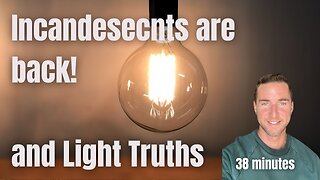 39:49
39:49
Watchman's Duty
18 days agoIncandescent are back and light rabbit holes
3.26K13 -
 LIVE
LIVE
Bare Knuckle Fighting Championship
2 days agoCountdown to BKFC FIGHT NIGHT ALBUQUERQUE & FREE LIVE FIGHTS!
155 watching -
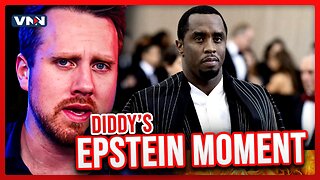 1:46:26
1:46:26
Vigilant News Network
6 hours agoDiddy’s Epstein Moment: Is the Fix Already In? | The Daily Dose
61K4 -
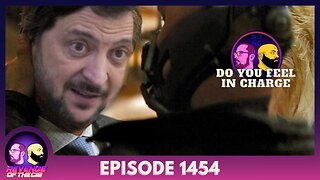 1:57:50
1:57:50
Revenge of the Cis
5 hours agoEpisode 1454: Do You Feel In Charge
35.6K18 -
 1:05:17
1:05:17
In The Litter Box w/ Jewels & Catturd
23 hours agoEPSTEIN: PHASE ONE | In the Litter Box w/ Jewels & Catturd – Ep. 752 – 2/28/2025
94.5K52 -
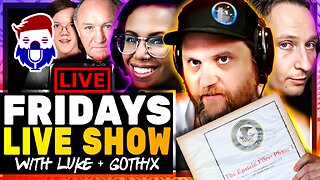 1:49:10
1:49:10
The Quartering
7 hours agoTrump DESTROYS Zelensky To His Face, Trump Assassin Accomplice & Epstein File Debacle
134K85 -
 55:32
55:32
LFA TV
1 day agoGermany’s Conquest of Europe | TRUMPET DAILY 2.28.25 7PM
8.36K3 -
 LIVE
LIVE
2 MIKES LIVE
4 hours ago2 MIKES LIVE #186 Oval Office Fireworks!
117 watching -
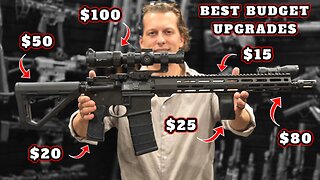 15:36
15:36
Tactical Advisor
8 hours agoMUST HAVE AR15 Upgrades for Under $100
86.3K4 -
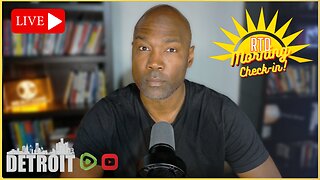 28:11
28:11
Rethinking the Dollar
8 hours agoTrump(verse): Trump Family Going All In On Crypto
18.7K2